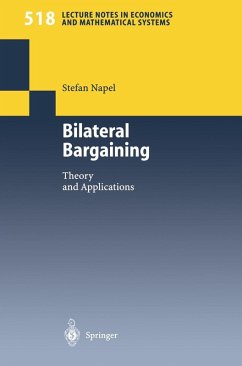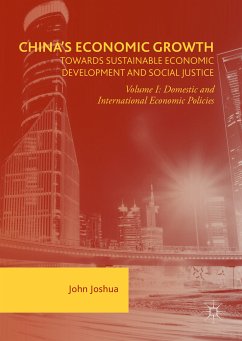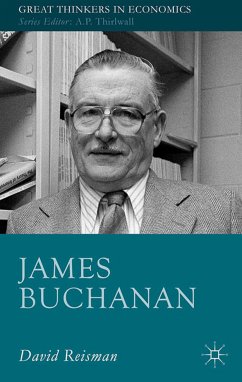This book investigates bargaining between two agents. Its objective is to present, to extend, and to apply the present state of theoretical knowledge. A wide range of questions will be considered: First of all, will two parties reach efficient agreements? Traditional economic theory gives a generally affirma tive answer for perfectly rational agents, who can carry out complex calcu lations instantaneously and without cost. The book uses innovative methods to analyse the implications of less demanding assumptions. A practical ques tion related to bargaining is: How much power does the design of institutions such as the U. N. Security Council give to each of its members? Formally, non permanent members' votes are necessary to pass resolutions, but theoretical investigation of pre-voting negotiation attributes all power to the five perma nent members. Or one may ask whether a society should rather finance the education in higher mathematics for a talented person than remedial training for a retarded person? Different concepts of justice yield different answers. Which particular concept is implemented in a given society is also a matter of bargaining, and it is of special philosophical interest to investigate which bargain will be struck in an ideal society in which individual talents and resources are not yet known. Very generally, a bilateral bargaining situation is characterized by two agents - individuals, firms, governments, etc.
Dieser Download kann aus rechtlichen Gründen nur mit Rechnungsadresse in A, B, BG, CY, CZ, D, DK, EW, E, FIN, F, GR, HR, H, IRL, I, LT, L, LR, M, NL, PL, P, R, S, SLO, SK ausgeliefert werden.









